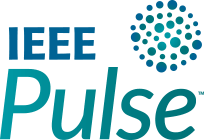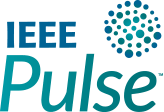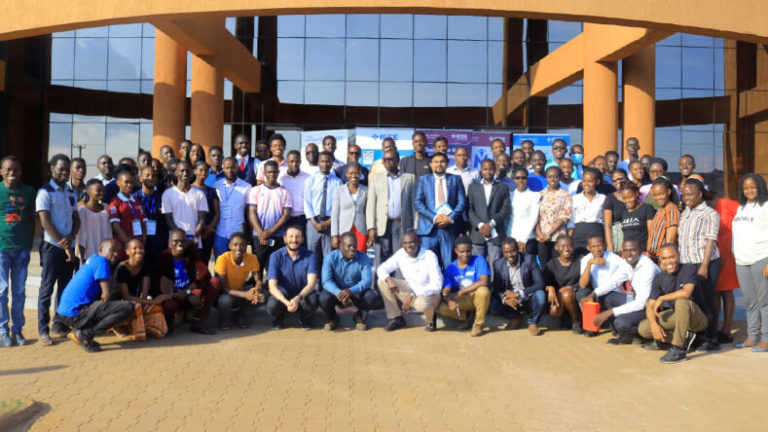Student members within IEEE Engineering in Medicine and Biology Society (EMBS) are one of the most active segments among all other membership levels. Student-led initiatives all around the world have shown the necessity to give students the opportunity to present solutions to educational challenges, aiming to make the learning of young people an enriching and continuous experience while honing their organizational skills. IEEE EMBS SAC [1], formed under vice president for member and student activities, has taken the responsibility to initiate and implement programs for undergraduate and graduate student members of the society. One of these programs, IEEE EMBS ISC, is the flagship event under the oversight of the Professional Development Portfolio. The purpose of the ISCs is to help students learn to manage an IEEE-style conference in a low-pressure environment and improve on their soft skills like leadership, communication, teamwork, and project management. Moreover, it gives them a platform to practice giving and receiving peer feedback on scientific writing and presentations, as well as making international connections which could turn into future collaborations.
Since the first edition in Cairo, Egypt, in 2013 [2], the ISCs have spread in all the regions where IEEE divides its membership, with an “organized for students by students” fashion. Formerly occurring once in a year, ISCs are now taking place simultaneously in each of the EMBS regions, namely North America, Latin America, Europe, Middle East & Africa, and Asia–Pacific, given a host is successfully found. All student chapters of EMBS are eligible to apply and host this conference, after going through the evaluation process.
The journey for each conference begins with opening the call for proposals. The announcement channels include EMBS newsletter and social media, as well as SAC social media (Linkedin: bit.ly/sac_linkedin_page, Instagram: bit.ly/sac_instagram, Facebook: bit.ly/sac_facebook). Then, five Regional Selection Committees (RSC) are formed, which are chaired by the regional representative of the respective region at the Administrative Committee (AdCom), as well as the designee from SAC ISC team. The role of this committee is to review the proposals, which detail main aspects of the conference such as the organizing team, advising committee, prospective venue, expectation of attendance etc., and advise SAC with a selected host candidate. Subsequently, this application is put to the vote first in SAC and then in AdCom. If both committees approve, the applicant chapter(s) are designated as official host(s) of the next ISC in that region. The RSC then takes on the responsibility of mentoring the host(s) and ensuring the success of the conference.
Now, let’s find out what happened in last year’s editions by looking at the highlights! Important note: All ISCs in 2022 were held in hybrid format (both in-person and online) to allow larger international participation and to avoid the threats posed by the COVID-19 pandemic.
ISC Asia–Pacific
The Asia–Pacific ISC 2022 took place on 26–28 September in Victoria, Australia, hosted by EMBS Monash University Student Club. The main components of the conference were the student paper competition, keynotes, panel sessions, workshop, lab tours, and most importantly networking (Figure 1). A core aim of the conference was to promote collaboration between IEEE and student clubs across Victoria, Australia. This collaboration was achieved by working together with student clubs (IEEE Women in Engineering Monash Affinity Group, Melbourne BioInnovation Student Initiative, Biomedical Engineering RMIT Student Society, University of Melbourne Postgraduate Association of Chemical and Biomedical Engineering Researchers, Monash Young MedTech Innovators, IEEE Monash University Student Branch, and IEEE EMBS SAC) and professional groups (IEEE EMBS Victorian Section and IEEE WIE Victorian Section). To showcase the diversity of BME occurring within Victoria, five workshops and lab tours across ten sites within St Vincent’s Hospital, RMIT University, Monash University, and the University of Melbourne were held. Overall, there were 211 registrations from 24 countries, 42 universities, 2 high schools, and 14 companies/research institutes. The recipients of the best student paper award were “Improving the Sensor-motor loop for Prosthesis” by Gaurav Sobti, Monash University (undergraduate category), and “The Impact of the Neocortical Architecture on Current Steering” by Sabrina Meikle, Monash University (post-graduate category). Further details can be found in [3].
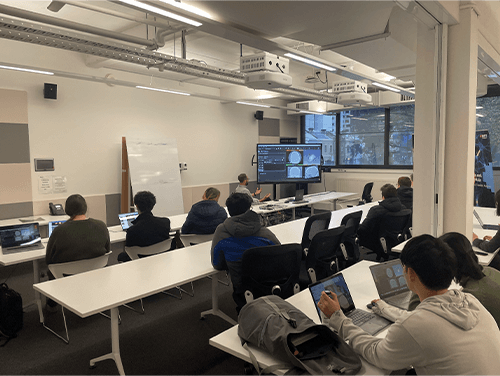
Figure 1. Medical Imaging Workshop presented by Dr. Tom Williamson at RMIT University at the ISC Asia–Pacific. (Photo courtesy of Ethan Grooby.)
ISC Middle East & Africa
The Middle East & Africa ISC 2022 was held on 4–5 October in Kampala, Uganda, hosted by EMBS Kyambogo University Student Branch Chapter (Figure 2). The event consisted of scientific keynote presentations by students, panel discussions, a presentation from EMBS Distinguished Lecturer Prof. Dr. Michela Chiappalone of University of Genoa, Italy, and our student representative Andre Luka Cakici’s presentation on EMBS opportunities for students. Over 200 participants attended this event, and five papers were submitted. The best student paper award was given to “Early Detection of Stroke and Cardiovascular accidents using an Automated Self-Use Portable Device” by Kwagala Keith Richard, Mbarara University of Science and Technology.
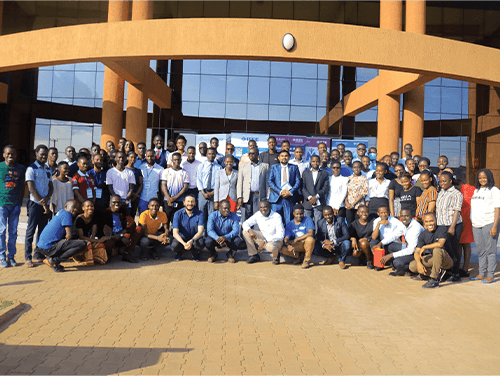
Figure 2. Attendees at ISC Middle East & Africa. (Photo courtesy of Kamuri Abraham.)
ISC Europe
The Europe ISC 2022 was organised on 24–26 October in the Pécs, Hungary. Different from other ISCs this year, this event was co-located with the International Conference of Biomedical Engineering and Innovation, organised by University of Pécs (Figure 3). The student activities in this first example of regional EMBS conferences was in the form of a student paper competition and our AdCom student representative’s presentation on the value of volunteering in EMBS as a student. Additionally, the i-Days Hackathon, powered by European Institute of Innovation and Technology (EIT), was organized here. EIT Health is an institute backed by the European Union, while i-Days Hackathon promotes health care innovation among students through team competitions that bring solutions to real-life challenges posed by EIT Health, local organizations, private corporations or start-ups. There were over 230 attendees, 16 oral presentations and 17 posters. The best student presentation awards were given in each topic category. In “Healthcare Software Development, Healthcare AI, Big Data’’ the first place was awarded to “Locomotion Synthesis with Deep Reinforcement Learning as a Simulated Testbed for Wearable Robotic Devices’’ by Balint K Hodossy. In “Bioprinting, Biotechnology; Simulation Education, Surgery Planning and Operational Medicine; Medical Materials Technology,’’ the first place was awarded to “Picur: Improved UV inactivation device for research and diagnostic use” by Roland Hetényi. The i-Days Hackathon winners were Team Safe Max (Zsofia Ulbert, Annamaria Wirth, Mate Robert Kovats, Csaba Biro).
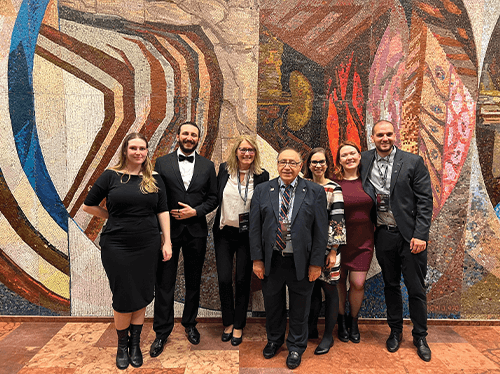
Figure 3. (Left to right) EMBS SAC Chair Agnieszka Łach, AdCom Student Representative Andre Luka Cakici, Practitioner Representative-Elect Prof. Dr. Natalie Mrachacz-Kersting, President Prof. Dr. Metin Akay, Conference Chair Dr. Luca Tóth, and Dr. Péter Maróti, at the International Conference of Biomedical Engineering and Innovation (ISC Europe). (Photo courtesy of Mikołaj Pia˛tek)
ISC Latin America
The Latin America ISC 2022 was held on 3–5 November in Concepción, Chile, hosted by EMBS Universidad de Concepción Student Chapter (Figure 4). Overall, there were 159 in person and 23 virtual attendees. The main parts of the conference were six keynote sessions and the eight oral presentations submitted to the Student Paper Competition, where best paper award was given to “Fiber Bundles Simulator to Validate Fiber Clustering Algorithms” by Elida Rosa Poo Pérez. Additionally, eight workshops in the schedule offered the opportunity to learn from experienced professionals from different backgrounds, like biomedical uses of deep-learning, simulation, data representation in Python and videogames, and other introductory topics on BME.
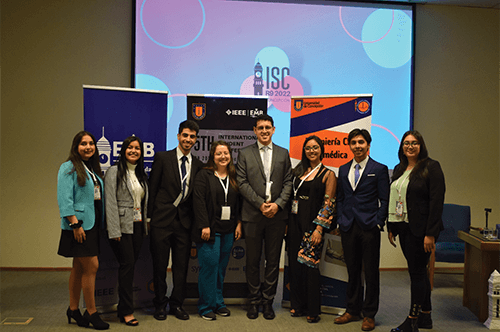
Figure 4. (Left to right) Program Chair Valeria Moraga, Publicity Chair Maria Fernanda Olarte, Finance Chair Jorge Vergara, Vice-Chair Paulina Fernandez, Chair Bruno Fernandez, International Committee Chair Natalia Vidal, Technical Chair Fernando Sanchez, and Paper Contest Committee Chair Ilse Varela of ISC Latin America. (Photo courtesy of Francisca Linco.)
Interested in hosting the ISC’23 in your region? Fill out the form following the link bit.ly/isc_eoi or send an email to sac@embs.org. Hosting an ISC is a challenging but also an at least equally rewarding experience! So, don’t hesitate to contact us for more information.
References
- J. An and S. Dutta, “Crafting the future-opportunities for students by the reinvigorated IEEE EMBS student activities committee,” IEEE Pulse, vol. 12, no. 2, pp. 38–40, Mar./Apr. 2021, doi: 10.1109/MPULS.2021.3067177.
- A. Abdelhadi, “IEEE EMBS International Student Conference,” IEEE Pulse, vol. 5, no. 1, pp. 84–85, Jan./Feb. 2014.
- E. Grooby, “IEEE Engineering in Medicine and Biology Society International Student Conference (EMBS ISC) Asia–Pacific,” J. IEEE Victorian Sect., no. 2, pp. 22–26, 2022. [Online]. Available: https://r10.ieee.org/victorian/uplink/
